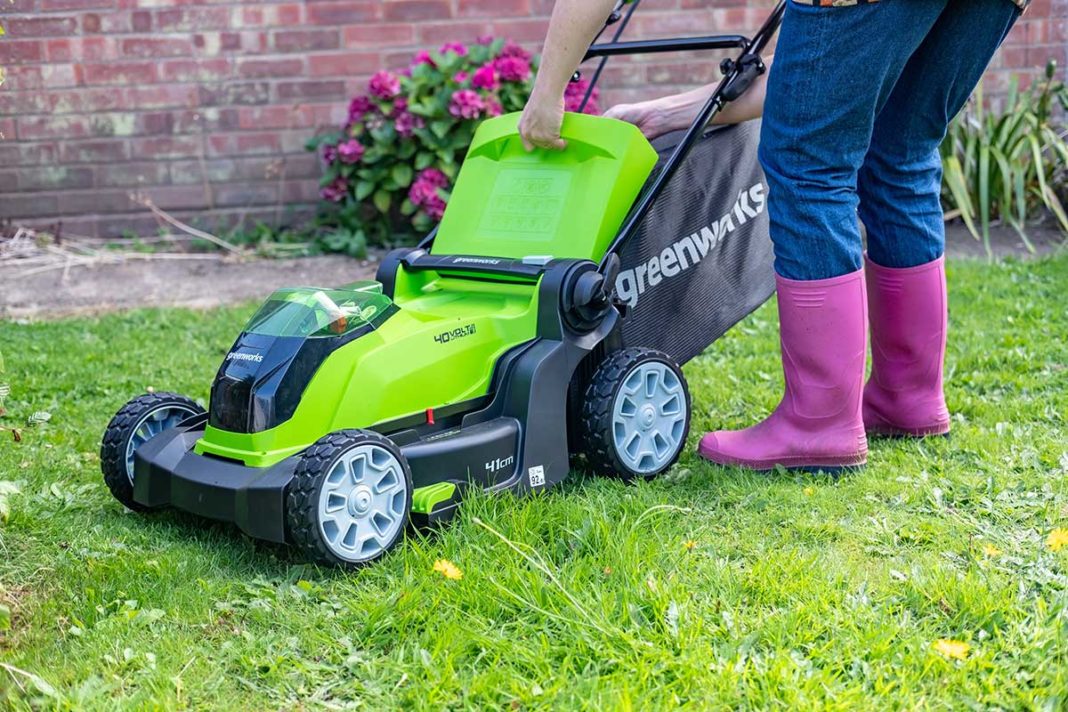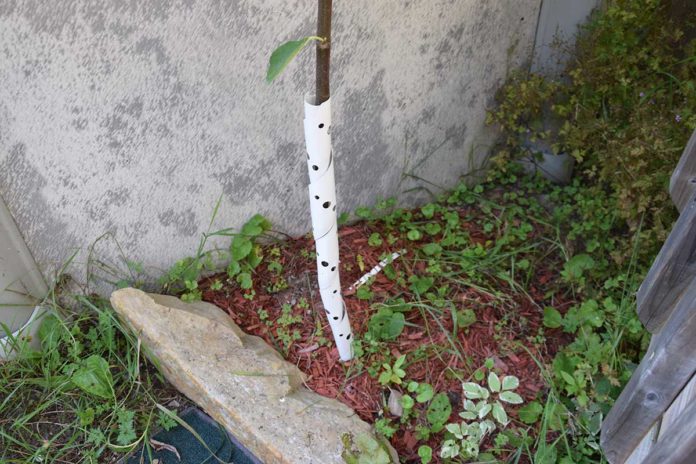MANITOULIN – Is it time to reconsider some of the tools we use to keep our properties manicured? Gas-powered outdoor equipment emits significant amounts of noise, carbon dioxide, nitrogen oxides and volatile organic compounds (VOC). There are 650 million gas-powered outdoor tools currently in use and every single one contributes to climate change, according to the Freedonia Group, a division of marketresearch.com.
The United States Environmental Protection Agency has calculated that a new gas-powered lawn mower produces as much air pollution in the form VOCs and nitrogen oxides emissions in our hour of operation as 11 new cars each being driven for one hour. Edmunds.com reported that two-stroke leaf blowers are 300 times more polluting than a truck. Running a commercial leaf blower for an hour can produce as many pollutants as driving a 2017 Toyota Camry 1,100 miles (1,760 kilometres), according to the California Air Resources Board. That’s one reason why on October 9, 2021 California signed into law a bill which will phase out sales of gas-powered lawn and garden equipment, such as leaf blowers and lawn mowers, in the coming years and as early as 2024.
Looking forward to winter snow clearing, gas-powered snow blowers are similar to leaf blowers in their environmental effect, with carbon monoxide emissions in one hour that are equivalent to driving a Ford F-150 over 1,000 miles (1,600 kilometres).
Battery-powered tools are becoming an increasingly good alternative. Battery-powered mowers, leaf blowers, trimmers and chainsaws are more efficient, produce zero emissions and there are now many yard tools that use battery power. Battery-powered and corded tools reduce air pollution but can also reduce the noise pollution in your neighbourhood. Using battery-powered or corded tools eliminates trips to the gas station, which also reduces the greenhouse gas emissions resulting from driving a gasoline powered vehicle.
With battery-powered or corded electric tools, you also don’t have to deal with gasoline spills and there is less maintenance. Some battery-powered models may require routine lubrication of gears but overall, less mechanical knowledge is required. There are other considerations. Power, for example, and limited battery time. Electric mowers continue to improve but they are still not quite on par with gas mowers and may have a more limited mow time unless you also purchase additional rechargeable batteries. Corded mowers are not as practical in yards with may trees, gardens or other obstacles. Battery-powered or electric equipment still tends to be more expensive than gas-powered; however, many manufacturers use interchangeable batteries which can be used on multiple tools.
A 2019 report on the outdoor power equipment market by U.S. based Markets and Markets acknowledged that the majority of electric-powered equipment is used for home gardening applications but noted that advances in technology have resulted in batteries that can last longer, contributing to the increasing adoption of electric outdoor power equipment. Furthermore, the report said, “manufacturers are also focusing more on cordless outdoor power equipment and launching innovative products in the market owing to the growing interest of consumers in these types of equipment.”
Cub Cadet is one of those manufacturers. They’ve been designing and building outdoor power equipment since 1961. “Responding to increasing customer momentum behind electric outdoor power equipment,” the company announced a new residential electric lineup in May, 2021. The electric counterparts to all of Cub Cadets top selling gas-powered mower and tractor “offer up to two acres of cut time with no power fade, require less maintenance, and are 64 percent quieter.”
Everyone’s criteria when buying lawn equipment and tools is different, but if you have a smaller yard, prefer a quieter outdoor experience or want to do your part to reduce carbon emissions, you might want to consider going electric or battery-powered for your next purchase.






